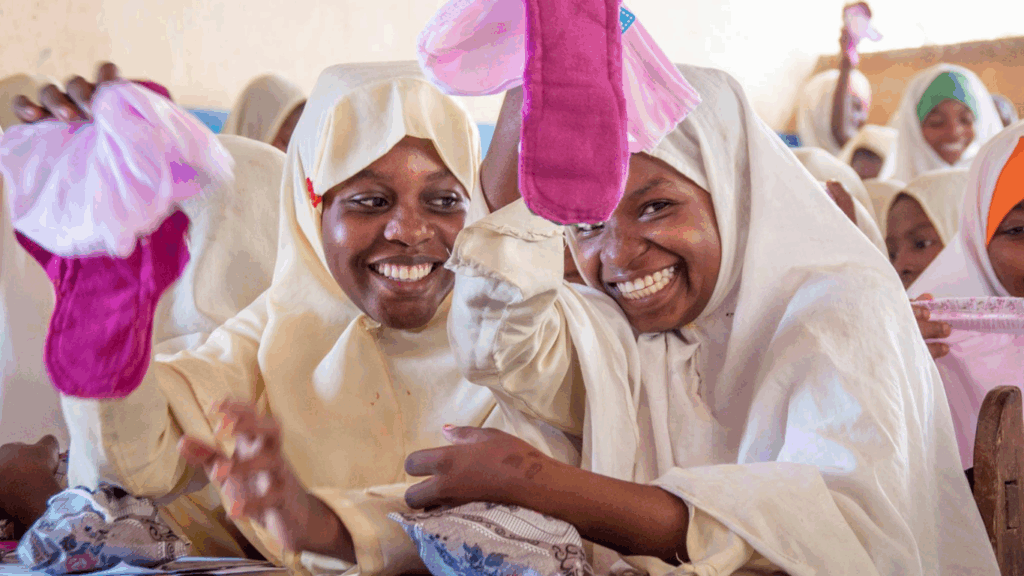Empowering rural women is a vital aspect of sustainable development that needs our urgent attention. By focusing on rural women’s opportunities and education, we ensure their rights are acknowledged and that their potential is reached.
Rural women, especially those living in developing nations, confront many barriers to equitable opportunities. Fewer than 20 per cent of the world’s landholders are women, and just 15 per cent of agricultural land is owned by women despite the fact that they make up the majority of the agricultural workforce across much of the world.
Despite some progress, women continue to face unfair laws and rules that make it harder for them to access support and resources. Whilst inequality impacts all women, rural women are even more at risk than their urban counterparts.
For example, 30 per cent of rural women give birth without a skilled health worker present, compared to 10 per cent of urban women.
 These rural women in Madagascar are planting mangrove trees.
These rural women in Madagascar are planting mangrove trees.Why Are Rural Women Marginalised?
Globally, girls and women still only have three-quarters of the legal rights that boys and men have. On average, they do more unpaid housework and caregiving than men and often aren’t allowed to take part or be leaders in their local communities.
Additionally, limited access to education, healthcare, and economic resources, often stems from deeply ingrained gender norms and societal expectations. Rural women are also more susceptible to gender-based violence, fueled by isolation, limited access to justice, and traditional gender roles.
Poor infrastructure and the digital divide increase these disparities. These hamper rural women’s ability to connect with essential services and information, with most of the 3.7 billion people who lack access to the internet being women and girls. Consequently, empowering rural women through education and opportunity is vital to ensure they have equal opportunities to thrive.
By providing rural women with access to education, healthcare, economic resources, and decision-making platforms, we can begin to break down these barriers, fostering a more equitable and inclusive society for all.

Empowering Rural Women to Combat Poverty
Empowering rural women has a huge impact on poverty reduction. As a significant portion of the world’s poor, rural women’s empowerment can uplift entire communities, improving living standards and fostering economic growth.
Access to education, healthcare, and economic opportunities is essential for empowering rural women, resulting in increased prosperity for all.
When women are given the opportunity to earn an income, they reinvest as much as 90 per cent of what they earn back into their homes. They spend on things like food, health care, education, and activities that generate further income for their family. This spending helps to end the ongoing cycle of poverty from one generation to the next.

How Can Rural Women Enhance Food Security?
Women constitute 43 per cent of the agricultural workforce in developing nations. Studies suggest that equal access to resources could boost their farm yields by 20-30 per cent compared to men, leading to a 2.5-4 per cent increase in total agricultural output in these countries. This could potentially decrease global hunger by 12-17 per cent.
Rural women’s empowerment plays a critical role in addressing food security. Empowering rural women with the skills and resources needed to grow and prepare nutritious food improves the health and well-being of entire communities.
By prioritising rural women’s empowerment in agriculture, we can ensure the long-term food security of vulnerable populations.

Empowering Rural Women to Tackle Gender-Based Violence and Discrimination
1 in 3 women worldwide has experienced gender-based violence. This figure increases for rural and remote communities. Addressing this violence is an essential aspect of empowering rural women. Women in rural areas are particularly vulnerable to violence due to factors like isolation, limited access to justice, and traditional gender roles.
Through rights-focused education, such as our ENRICHE curriculum, we can empower rural women to challenge violence and discrimination and participate in decision-making processes, we can break destructive cycles and build safer communities for everyone.
 These rural women in Senegal are training as Solar engineers with Barefoot College International. In this ENRICHE class, they learn about the female reproductive system, increasing knowledge and breaking taboos.
These rural women in Senegal are training as Solar engineers with Barefoot College International. In this ENRICHE class, they learn about the female reproductive system, increasing knowledge and breaking taboos.How Rural Women’s Empowerment Improves Environmental Sustainability
Women in rural areas possess valuable knowledge of local natural resources. Their involvement in sustainable practices like conservation, reforestation, regenerative agriculture and farming, and land management is indispensable.
When women are involved in managing natural resources, the resources are typically better cared for and conserved, leading to improved outcomes. By incorporating rural women’s perspectives in conservation and sustainable development, we ensure local communities’ needs are addressed effectively.

Why is Women’s Empowerment a Human Rights Issue?
The importance of empowering rural women and girls goes beyond sustainable development; it is fundamentally a matter of human rights.
Women deserve equal and equitable participation in all aspects of society, including education, healthcare, and economic opportunities. By focusing on rural women’s empowerment through education, we can build a world where everyone can thrive.

Partnership for Women’s Empowerment
International development efforts must prioritise empowering rural women by providing resources and support for education, economic opportunities, and leadership training.
A multi-sectoral approach is required, with governments, civil society organisations, businesses and local communities working together to implement solutions that empower rural women. This must be a top priority.
Barefoot College International actively collaborates with partners across all sectors to achieve the goal of empowering rural women and communities.
Are you looking to empower women through CSR? Partner with us today!
Learn more about why rural women are the key to sustainable rural development


